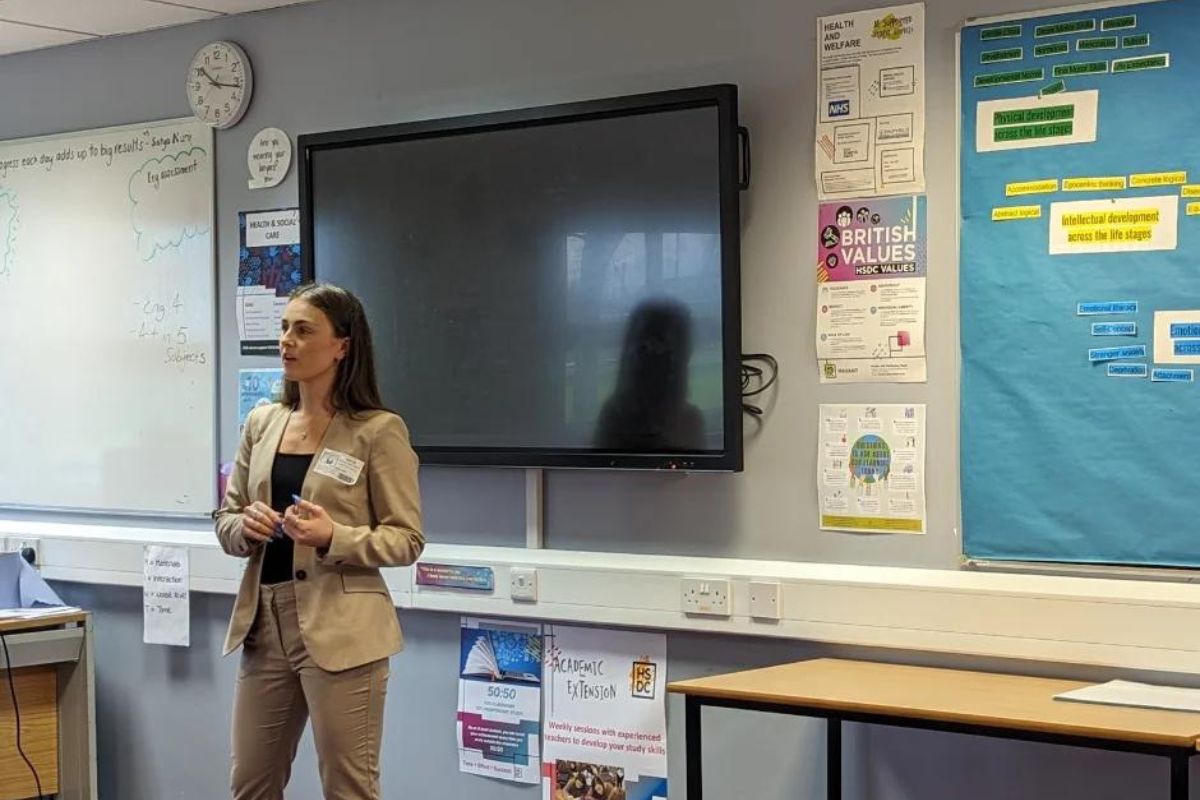Why do we need Artificial Intelligence in assessment?

The Artificial Intelligence (#AI) education revolution is coming. Or at least, that’s the view of Anthony Seldon in his book that investigates whether AI can be the linchpin that enables a move towards a radical new system of education.
It certainly would appear a revolution is in the works, judging by NCFE’s Assessment Innovation Fund applications. Our pioneering programme offers applicants up to £100,000 to fund innovative approaches to assessment.
What does AI mean for the future of assessment?
At NCFE we’re dedicated to promoting and advancing learning in all its forms, but what does AI mean for the future of assessment?
Seldon defines five unsolvable systemic issues in our current education system:
- Failure to defeat entrenched social immobility
- Inflexible progress through the education system
- Teaching overwhelmed by administration
- Large class sizes inhibit personalised and breadth of learning
- Homogenisation and lack of individuation of personality
These five issues largely convene around the ability to personalise education for each individual student all of the time, and it’s no wonder that this is a huge challenge for teachers.
The time and effort it would take to investigate everyone’s learning preferences, career ambitions, current knowledge, skills and behaviours would be substantial.
Particularly when you then factor in identifying skills gaps, the reasons for these gaps, understanding the level of support available outside of school and planning a personalised journey through a bespoke curriculum – it appears to be an impossible task.
Enter assessment powered by AI.
Imagine a school, college, training provider or university where each student was given a personal learning coach to guide them through their education journey:
- A coach who learns about an individual’s current abilities and their future aspirations.
- A coach who can deliver small, low stakes, adapted assessment at optimised intervals to celebrate learning and identify gaps and misconceptions in skills, knowledge and behaviour.
- A coach who could suggest an adapted learner journey through the curriculum for each individual student.
- A coach who could use assessment responses to suggest the most optimal sequence through the content for maximum depth of learning and personal development, in the minimum time.
This is the potential for AI in assessment. This powerful digital coach would enable (human) teachers to provide a personalised and adaptive learning experience for every student based on AI-powered assessments and feedback.
Ideas to enhance the future of assessment
At NCFE, our Assessment Innovation Fund (now in its second phase) is actively looking for ideas to enhance the future of assessment and many of the fund’s applicants so far are using assessments powered by AI in their work. (We will be releasing more details of the successful applicants from the first phase of this scheme and their innovative ideas in the New Year).
Examples include the use of AI to mark learner work, to provide instant feedback and next steps advice, and to provide feedback on a learner’s online activity. The common thread running through these applications is how best to deploy AI to support the work of educators to add value to the learning experience.
At its best, AI in education could mean that teachers would be freed from progress monitoring. Instead, teachers could take the time needed to build deeper relationships with those currently disadvantaged by the system, enabling more people to use learning and knowledge to access previously unachievable opportunities. Schools, colleges, and universities could become places of enormous human diversity, with students developing in a truly individual and holistic manner through their learning journey.
There is clearly much work to do before this is a reality. AI systems need to be trained by expert teachers to replicate excellent pedagogical decisions across the full range of subjects. We also need to consider ethics, processes that protect the student and the quality of education, a change in mindset and much more. But these challenges are not impossible to overcome. In fact, the AI education revolution has actually already begun.
The AI education revolution has already begun
A good example is the use of an AI-assisted learning and assessment platform at Basingstoke College of Technology (BCoT) which provides learners with personalised learning content following two diagnostic assessments.
The maths team at BCoT are refining their approaches all the time and have had the most success with adult learners, who have benefitted from personalised independent learning and instant feedback on their knowledge checks.
Younger learners who need to be stretched and challenged have also benefitted from the approach. However, others have learned better when the teacher intervenes to override the AI decisions and plan a path through the content that is concurrent with the classroom topics.
In the US, AltSchools plunged headlong into a fully personalised learning approach with mixed success. Here, the collection of for-profit private schools struggled to fully transform themselves into the tech schools of the future before many closed down (Adams, 2019).
There are lessons to be learned from both examples in the deployment of the technology – in particular how radical the changes are to the traditional classroom model – and how best to use human teachers in the AI-assisted model.
If these early adopters can iron out the wrinkles in AI-assisted teaching, we can expect education systems to scale up rapidly to a place where AI personalised learning, powered by AI assessment, is the norm for most students.
Of course, this would need to be facilitated by great teachers adding the human touch to learning, which will remain just as vital in the future as it has in the past.
Let’s hope NCFE’s Assessment Innovation Fund can go some way to supporting the ideas that might just make AI in teaching and assessing a reality.
Dr Gray Mytton, Assessment Innovation Manager at NCFE












Responses